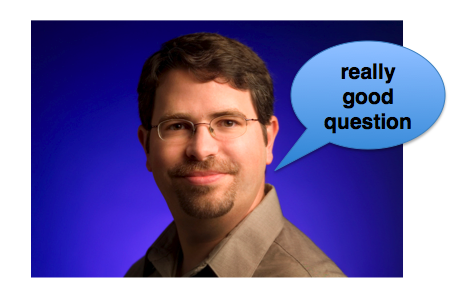This week, my peers and I have been asked to create college-level questions based on the readings we have encountered for homework. Some of their inquiries were very good!

The first question that I thought was higher-level was this one by Kelly:
How can being bored impact creativity in a positive way?
I like this question because it does not have one specific answer. You cannot simply repeat facts from the articles to answer this question, you have to apply the topic. It leaves room to answer it argumentatively.
However, I feel that her answer to this question could be improved upon. (I provided the link below to her answer). Although she made good points, there were no specific details or examples. She argued her point pretty well, but it lacked the evidence to prove that what she was saying was right.
http://kellyrobinson19.blogspot.com/2013/11/11a-think-like-college-student.html
How can being bored impact creativity in a positive way?
I like this question because it does not have one specific answer. You cannot simply repeat facts from the articles to answer this question, you have to apply the topic. It leaves room to answer it argumentatively.
However, I feel that her answer to this question could be improved upon. (I provided the link below to her answer). Although she made good points, there were no specific details or examples. She argued her point pretty well, but it lacked the evidence to prove that what she was saying was right.
http://kellyrobinson19.blogspot.com/2013/11/11a-think-like-college-student.html
The second question that I found to be college appropriate was this one by Stephanie:
What are ways we can promote more creativity? Why are these important looking towards the future?
I enjoyed this question because it asks an open-ended question that can be directly related to the readings, and it is followed up with a second question asking you to think about the topic in a broader sense. The first part can easily be supported by the articles, but the second part forces you to do higher-level thinking.
I thought that her answer for this question was also very good. (See the link below for her answer). It is quite long, but that is because it is so detailed. She uses specific examples to support her main points, there is a clear beginning and conclusion, and it is not simply repeating facts in the articles.
http://stepphhr7.blogspot.com/2013/11/11a-promoting-creativity.html
What are ways we can promote more creativity? Why are these important looking towards the future?
I enjoyed this question because it asks an open-ended question that can be directly related to the readings, and it is followed up with a second question asking you to think about the topic in a broader sense. The first part can easily be supported by the articles, but the second part forces you to do higher-level thinking.
I thought that her answer for this question was also very good. (See the link below for her answer). It is quite long, but that is because it is so detailed. She uses specific examples to support her main points, there is a clear beginning and conclusion, and it is not simply repeating facts in the articles.
http://stepphhr7.blogspot.com/2013/11/11a-promoting-creativity.html
The final question that I am going to talk about today is this one by Paige:
How can "micro-boredom” affect a college student in a negative or positive way?
This question is good, in my opinion, because although it requires you to define a term mentioned in the readings, it forces you to elaborate on the topic. It is not just asking you for a definition, you have to apply it to the life of a college student and argue whether it is a positive or negative thing.
Unfortunately, Paige did not answer this question in her blog.

I feel that this assignment will be very beneficial for me when it comes to anticipating quiz questions in the future. I have learned to expect more than just being asked the definition of new terms. I realize now that college-level essay questions require you to think at a higher level than that. They should be treated like mini essays with thesis statements and conclusions. I can apply this to my own studying by imagining what open-ended questions could be asked about each topic as I am reading. I believe that I will be better prepared for my next quiz because of this week's exercise.

No comments:
Post a Comment